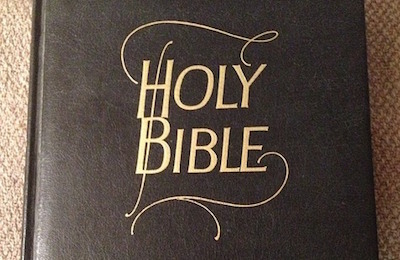Jeremiah Chapter 51 Lessons from the textGrace Before Judgment God orchestrated Babylon’s victories and its final defeat. He gathered many nations under Nebuchadnezzar’s rule and unified many peoples. He pulled together all the sinful idolatry and wicked practices so that He could pass judgment on them in one stroke. In essence, He gathered all the sinners in one spot so He could cast them all into destruction. Yet despite this, verse 9 states that God would have healed Babylon if it has been willing to be healed. God, while guiding every sinner to destruction, still gives that sinner space to repent. Imagine that guards are walking you to the execution block. You see your lawyer standing nearby. He has the one piece of evidence that will grant you a pardon, but you refuse to listen to what he has to say. So, you die. Jesus is your lawyer. He has the one thing that will grant you pardon to even the vilest sin. Through His blood, any crime or wickedness can be forgiven. Yet people refuse to listen to Him, even as they are marched towards their execution block, hell. Do not be like Babylon. Turn to God and be healed today. Verse by Verse Commentary Artist rendition of the Tower of Babylon. Artist rendition of the Tower of Babylon. 1 Babylon has grown as a center for culture. Many nations and peoples dwell within its boarders, among whom are the enemies of God’s people. 2-5 When one fans a flame, it grows stronger. Even so, God will fan Babylon’s destruction by strengthening the army that will come against it. God’s purpose in overthrowing Babylon is to liberate the Jews. This is fulfilled when the nation that conquers Babylon, Persia, releases the Jews to return to Jerusalem (II Chro. 36:22-23). 6-7 The citizens of Babylon are told to flee. God is using Babylon to fulfill His wrath on all the nations. Through its conquering, Babylon has become the focal point for civilization. It has centralized all the idolators, liars, coveters, and fornicators into one nation. Now that they have been gathered together, God will judge all the people in one stroke by demolishing Babylon. This is a forerunner to the judgment against society in the end days when God will repeat the destruction of Babylon (Rev. 17:3-6, 18:1-20) and gather all sinners to be destroyed in a single battle (Rev. 20:7-10). 8-9 God makes it clear that He is willing to heal sinners, but unfortunately sinners often refuse to be healed. 10 A candle is best seen in a dark place. Even so, by enduring troubles, Israel’s righteousness will be revealed. Note that declaring God’s works goes hand-in-hand with righteousness. Those who are righteous love God and therefore want to praise Him, and those who praise God do so from a heart which loves the righteousness that is found in God. 11 God names the nation which will destroy Babylon. The Persians are essentially the renovation of the Median Empire; Cyrus establishes the Persian Empire when he overthrows the Median Empire ruled by his grandfather. 12 Setting a standard seems to refer to proclaiming warnings of judgment against the wicked. See Isaiah 62:10. 13-18 God says that the invading army will swarm within Babylon’s cities to overrun them. God can do this because He is the ultimate authority over the nations. This is compared to the false gods who have no power to speak like a multitude of waters and send lightnings or rain. 19 Israel has no part in the idolatry of other nations. Having the Living God on their side, they should know unequivocally that all other gods are fake. 20-26 The “thou” here is unclear. While it is applicable to Israel for through Israel God will judge all the nations and place Israel as ruler over nations in the end times (Isa. 14:2), it is also applicable to Persia in the immediate sense of overturning Babylon. This may be one instance of Scripture where both senses are intended. Regardless, the reason given for this judgment against Babylon is that it is restitution for the evil that it has done by destroying other nations. God calls it a “mountain” because therein lies the Tower of Babylon, the reconstruction of the Tower of Babel (Gen. 11:1-9). Babylon’s punishment is to be left desolate forever, a prophecy that has been fulfilled for it has been abandoned so long that in the present day no one is certain where the nation once stood. 27-28 God repeats verses 11-12. 29-33 God repeatedly uses this image of the men of war being so struck with fear that they like helpless women. God is saying that any honor or glory these men possess will give way to fear. This same imagery of fear can be found against Egypt (Jer. 46:5), Philistine (Jer. 47:3), Moab (Jer. 48: 43), Ammon (Jer. 49:5), Edom (Jer. 49:22), Damascus (Jer. 49:24), and Kedar (Jer. 49:29). Noteworthy is that there is a specific time of judgment, a harvest time, against sin. 34-35 Nebuchadnezzar has “swallowed” the Jews because he has taken their land and is feasting off of their gifts. He has “cast…out” the Jews by not giving them any of the fruit of their labor. The promised land is the land of milk and honey; it is the most fertile and productive land for crops (when the spies entered the land it took two men just to carry one cluster of grapes - Num. 13:23-27). Babylon greatly benefits from having this land in its territory, yet Nebuchadnezzar does not share of this wealth with the Jews whose land it is. 36a Since the Jews are unable to defend themselves against Babylon, God will fight on their behalf. God takes vengeance on the oppressors of His people; followers of God should not expect to punish anyone who does them wrong but instead wait on God to allow Him to judge and deliver according to His divine will. 36b-44 God repeats the judgment against Babylon. On Bel, see Jeremiah 50:2. 45-46 God repeats the call for His people to come out of Babylon, this time expounding the fact that the destruction will begin with a rumor and lead up to the fighting of two rulers (see Jer. 50:8, Dan. 5:18-31). 47 As with Egypt and Moab, God is not merely judging the people; He is proving that the idols in which the people believe are useless (Exo. 12:12, Jer. 48:13). 48-49 See Revelation 18:20. God rewards evil with evil, and creation celebrates His righteous judgments. 50 God addresses the Jews that have escaped death during the Babylonian conquest. He admonishes them to turn their hearts to God. That is, God has caste them away for their sin, but He does not wish them to stand still in their sin; He desires them to move away from their error and turn to Him. See I Kings 8:46-53. 51-58 The Jews believed that God was on their side. When Babylon overpowered them, they were confused because they had expected God to deliver them (Jer. 21:1-2). Instead, the Babylonians destroyed the temple (II Ki. 25:8-9). Because of this disrespect to the holy place of God, God will prove that the Babylonian’s gods are powerless. No matter how impenetrable Babylon may seem, God will overpower it. 59-64 This is the only time in Scriptures when Seraiah the prince is mentioned. He is not to be confused with the chief priest of the time who is also named Seraiah (Jer. 52:24). See Jeremiah 26:16 for a possible connection. Whoever Seraiah is, Jeremiah describes him as a “quiet prince.” He is taken with King Zedekiah into captivity, and God trusts him to fulfill this mission of proclaiming the prophecy which Jeremiah has written. He is also given a sign to perform before the captives in Babylon. Noteworthy is that God decreed destruction on Babylon for the sake of the Jewish captives before the Jews are even taken captive. God looks forward in time to orchestrate the things of today to prepare for tomorrow. Such is why believers can have complete confidence that God will provide for them all the days of their lives. ___________________ Thank you for your faithfulness in studying God’s word. Please comment below to share what you learned from today's lesson.
0 Comments
Leave a Reply. |
Devotional Categories
All
Archives
September 2023
|
|
Join my mailing list!
|
Thank you!You have successfully joined our subscriber list. |
|
© 2024 Melissa Beaty
|
